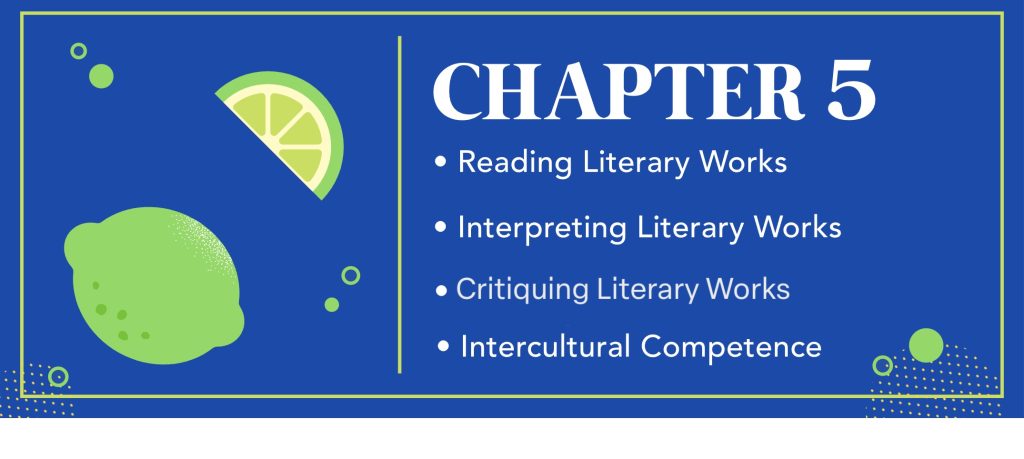Chapter 5 Objectives
Barry Mauer and John Venecek

Objectives
This chapter covers the ways that literary scholars read and interpret literary works. Before we can do research about a literary work, we need to have some understanding of the literary text. Literary scholars tend to re-read a text many times: before doing additional research, during research, and during the writing process. A literary text stands as the most valuable “evidence” that a literary scholar presents to readers. In “Reading Literary Works,” we introduce three strategies for reading a literary work, including explication, analysis, and comparison/contrast. Your research project should make use of at least one of each of these reading strategies. In “Interpreting Literary Works,” we introduce two major interpretive strategies: explicatory and symptomatic. You should choose at least one of the interpretation strategies (it’s ok to combine them too).
This chapter presents you with four tasks, three of which give you opportunities to practice working with literary texts through reading, interpreting, and critiquing selected literary works. The fourth task is for you to determine what intercultural competency you need to develop for research on your chosen literary work.

 Learning Objectives
Learning Objectives
These pages provide practical advice on how to read literary works before beginning your research project. By learning these lessons, you will be able to use the following strategies in your reading of literary works:
- explication
- analysis
- comparison/contrast
Great critics learn to use many reading skills and to demonstrate to audiences how they read, understand, and critique a text. Interpretation requires great skill and is difficult to master. The two interpretive paradigms you will learn are:
- explicatory, which transforms implicit meaning into explicit meaning.
- symptomatic, which suggest a text’s explicit message is betrayed by another message that the text has attempted to disguise.
Your research will benefit when you use these strategies before you formulate your research question and thesis statement.

